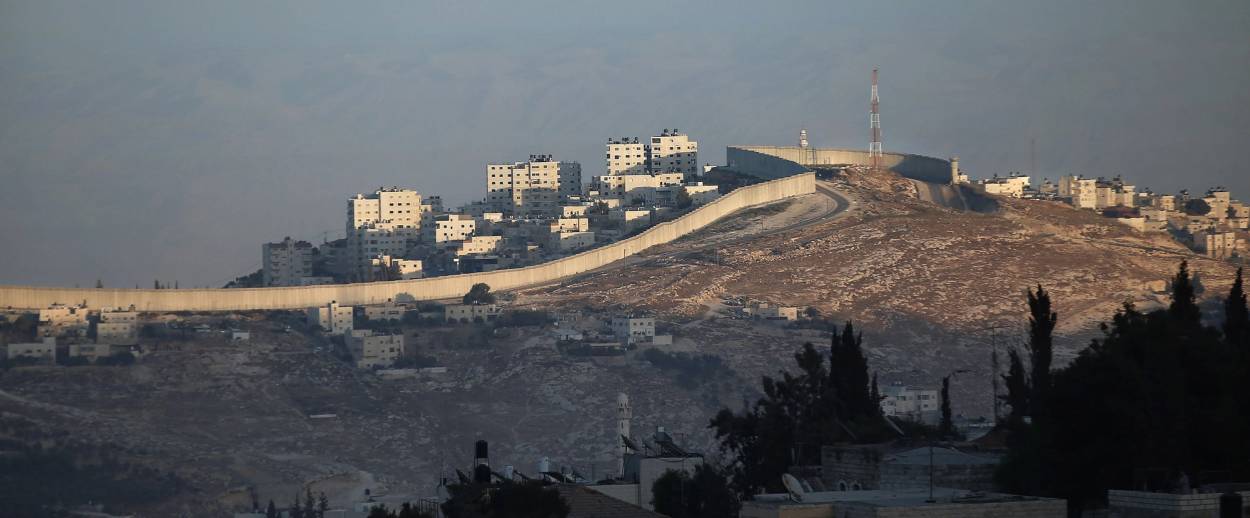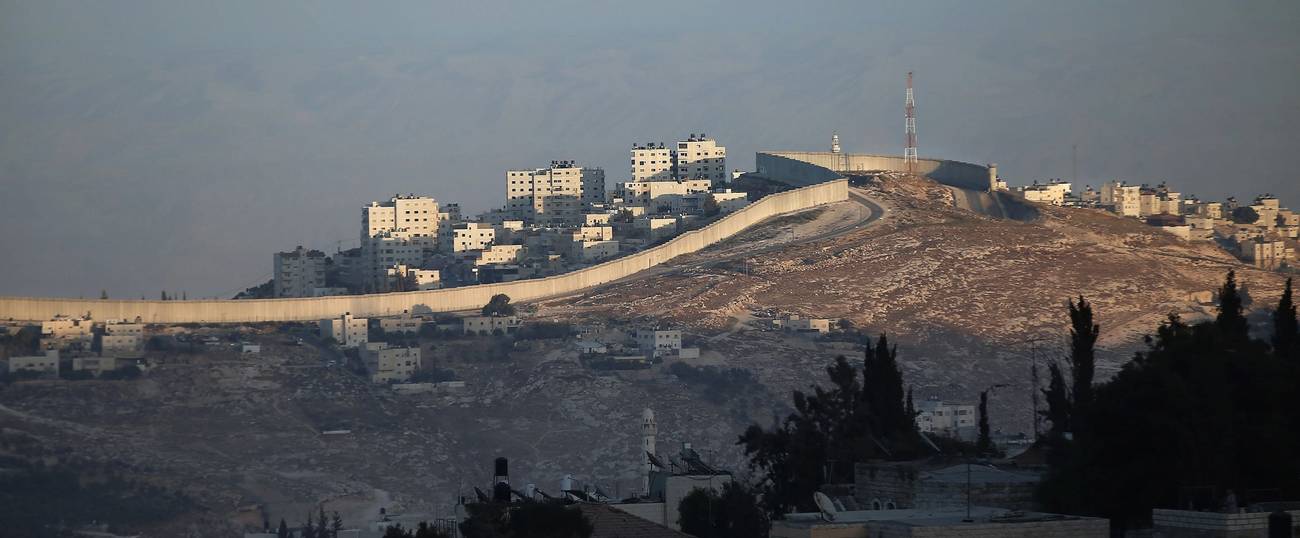The Two Jewish State Solution
Israel’s former internal security service chief decries the threat of religious Zionism left unchecked in Judea and Samaria




Might “two Jewish states” exist within one “bi-national state”? And if so, what might the future hold?
Is this the end of the two-state solution? Not at all. The two-state solution is becoming true for the Jews: The State of Judea is being built de facto side by side with the State of Israel. These are two nations whose differences are eclipsing their commonalities, a condition that is growing irreversible.
The State of Judea has different standards, different approaches to democracy, and it has two justice systems, one for Jews (Israeli law) and the other for Palestinians (martial law). Whether we want it or not, these two justice systems have divergent measures to adjudicate identical offenses.
Do nations have borders? Most of the time. These two states are separated by a clear border, the buffer zone/separation fence designed to distance us from Islamic/Palestinian terrorism but that, in fact, created a border between two Jewish states.
In the State of Judea, the laws are hardly ever enforced against Jews. In the State of Judea, there’s a gradual flourishing of anarchic, anti-authoritarian ideologies that are violent and racist and that are tolerated, from a legal point of view, by the Israeli justice system. In the State of Judea the (no longer tiny) minority of radical “Hilltop Youth” and their various supporters set the tone for the mainstream of religious Zionism.
Anyone who thinks we’re talking about no more than a few dozen wild-eyed youths is bitterly mistaken. In the State of Judea there are hundreds of young people (some no longer that young) who adhere to messianic and/or anarchic and anti-authoritarian ideologies. Among those hundreds are dozens who each day apply some level of violence or terrorism against the persons or possessions of Palestinians. Among them are dozens who would be willing, without hesitation, to apply violence and terrorism against their Jewish brethren should their idea of the sanctity of the land ever be put to the test. According to some scenarios, the ranks of these extremists might mushroom.
These statistics have for years been well-known to the General Security Service, to the police, to the Israel Defense Forces, to prime ministers, to the state attorney’s office, to the prime minister’s legal counsel, to ministers of defense, and to the various Knesset committees. Back when I was the head of the GSS, I spoke in various pre-military colleges in Judea and Samaria and said bluntly that I considered Jewish terrorism to be a cancer and that no Jew may legitimately resort to terrorism when protected by a strong state and defense organizations. These statements were widely covered in the media at the time. The GSS has also, over the years, held dozens of meetings with leading rabbis in order to recruit them to help curb this phenomenon and condemn it, usually with very limited success.
The number of people in the GSS Jewish Division, especially those who wore kippot and lived in settlements, were harassed, boycotted, and condemned by radical right-wing activists. One of the GSS’s current senior officials, who wears a kippa and who had, until recently, resided in a settlement, was afraid to accept the position of the GSS section chief in charge of the Jewish Division. And I know very well one of the GSS’s deputy directors who was the victim of a campaign by some of religious Zionism’s so-called mainstream rabbis, who pressured the prime minister not to appoint him as the head of the GSS solely because he had previously served as the head of the section in charge of the Jewish Division while the latter investigated one of the rabbis’ sons for being involved in a “price tag” attack …
The political class has always lacked real passion about and interest in this subject. It has always been, and will always be, much more interesting to address other security threats than to deal with administrative measures or warrants against Jewish terror activists. Nor is such a move politically advisable under a government supported by right-wing parties and with right-wing and rabbinical lobbies that immediately mobilize to help those who were jailed or placed under any other restriction.
Of course, outlawing “price tag” attacks, as was recently recommended, or approving the placement of Jewish terror activists under administrative arrest is not politically “healthy,” and it’s certainly not “healthy” to pass legislation that provides the same tools to investigate Jewish and Palestinian terrorism. It’ll take many years for these things to happen, if they ever will.
Religious Zionism still isn’t the majority in Israel, but as a very significant elite it has succeeded in making an ugly contribution toward the de facto establishment of the State of Judea, and it’s on its way to try and take over (democratically) the State of Israel. This, without a doubt, is a triumph for the ideology of religious Zionism, but it’s a Pyrrhic and tragic victory.
This is because religious Zionism has, unknowingly, sown the seeds of its own destruction. It gave birth to extreme religious nationalism, which in turn gave birth to its own right-wing competitor of extreme Jewish messianism, which itself gave birth to the Hilltop Youth, who are anti-authoritarian, violent, and extreme and who support the “revolutionary” values of Jewish supremacy (yes, Jewish supremacy) as well as a halakhic state, terrorism, hatred toward the other, and racism. Today, even the rabbis who delivered these wild-eyed ideologies are considered too soft and moderate for many of their followers.
As far as I’m concerned, the main problem is that religious Zionism has given birth to the value of the sanctity of the land and has placed it practically before the sanctity and unity of the people, and without unity we cannot exist. Nothing could be more dangerous to our national security. I love the land of Israel, from the river to the sea. Very much. I am attached to each inch and piece of soil. I’ve been hiking it since I was a boy, up and down and all around on foot, on bike, and by car. I’ve learned its history with much love, and no one is happier than I am when I see its lights as I fly back home after a visit abroad. It’s my people’s homeland, it’s my home and my children’s home, and there’s no place I’d rather see my children and my grandchildren grow up than here.
But I love the people of Israel much more, and I’m anxious about their existence, and not necessarily because the Iranian nuclear threat or the Islamic/Palestinian terrorism I’d fought for dozens of years. These are extreme phenomena, but I know that nothing could be more dangerous for the survival of the people of Israel than extremism, sectarianism, and hate. If you’d like, you’re welcome to take another look in any book detailing the history of the Jewish people.
What makes everything I’ve just described a much greater problem is the fact that the “two states for two Jewish peoples” is becoming a reality within the “binational state” that’s also becoming a reality, in which we would no longer be able to separate Jews from Palestinians.
So, how may this impossible arrangement survive? The answer is very simple: It won’t. Period. Things will only get worse and more complicated, with the low point being a scenario in which a state governed by a divided Jewish minority and based on halakhah will forcefully govern the Palestinian minority within, with all that it implies.
Whoever thinks that an official announcement about the situation is forthcoming is wrong. This is a slow but persistent process, taking place every day. It’s very hard to notice this process until it builds up a critical mass, but when it does it irreversibly changes reality. When we wake up, it may be too late.
What can we do? My conclusion is to wait for it to get worse so that it might get better. Because in order to change the course of things we must recruit the people, and the people, sadly, only start to see things clearly when things are very bad indeed. Therefore, we can only wait for things to get worse, and only then maybe we’ll start realizing that we must save this mighty Zionist enterprise called the State of Israel and that is growing further and further from the vision of our Founding Fathers. And I’m almost certain this will succeed, and that it will really get much worse.
Would it get better thereafter? It’s up to us. Only if we realize that “where there is no vision, the people cast off restraint,” and that we got here because of a lack of leadership and a lack of vision, and that those leading us have a fundamentally wrong set of priorities, maybe only then will things begin to change for the better.
***
Tablet Magazine is reprinting this English-language translation by Liel Leibovitz of Yuval Diskin’s essay, which first appeared on Diskin’s Facebook page, by permission of the author.
Yuval Diskin was head of Israel’s internal security service, the Shin Bet, from 2005 to 2011. During the First Intifada, he served as coordinator for the Nablus, Jenin, and Tulkarm districts. During the Second Intifada, he served as Deputy Director of the Shin Bet and, from 2003 to 2005, as special advisor to Mossad head Meir Dagan.